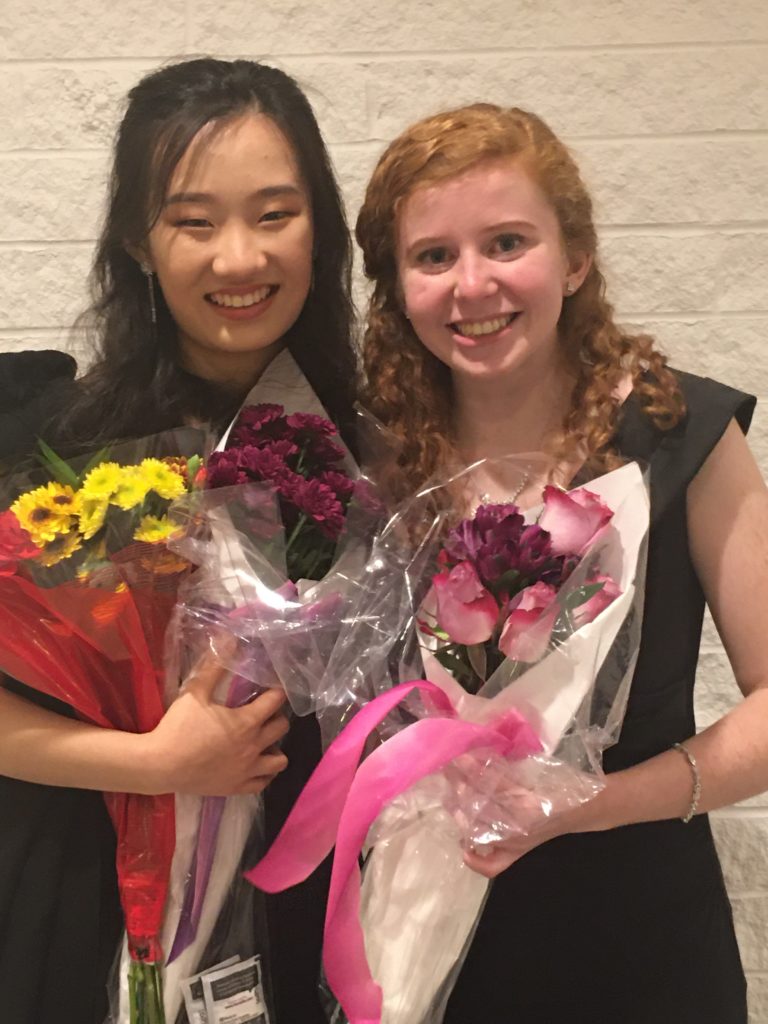
ALINA PANEK, News Editor — Elizabeth Itzkoff ’21, studying Music: Vocal Performance and French, could sing before she could talk.
While watching “Barney & Friends” as a toddler, Itzkoff would hum and sing parts of the theme song. Singing has always been a loving part of Itzkoff’s life. Another loving part of her life, an integral part of her identity since the day she was born, is her hearing loss. Itzkoff has mild sensorineural hearing loss (SNHL). It has been embraced in her family, as it runs in the family and her father, uncle, her passed grandfather, and sister also have it.
Itzkoff describes her listening experience to be like someone who needs glasses; it is like squinting with a headache. “It’s more about concentrating when you’re trying to hear. It can be challenging in different settings but in the classroom I just have to sit in the front,” Itzkoff said.
According to the American Speech-Language-Hearing Association, this is the most common type of permanent hearing loss. Most of the time, medicine or surgery cannot fix SNHL but it often is prescribed hearing aids.
“Most people don’t know that I wear hearing aids unless I tell them,” Itzkoff said.
Her hearing aids have advanced technology with bluetooth capabilities. Itzkoff can connect her aids to laptop or her phone to listen to movies or music, allowing her to listen without anyone knowing.
She has mainly seen her disability as a positive. “It makes me appreciate that everyone’s unique,” Itzkoff said. “It makes me more aware of pitch because of the sensitivity in my ears.”
During a VAIL concert for our Introduction to Psychology class, the ensemble-in-residence ETHEL asked our class if anyone was studying music. Itzkoff raised her hand. Ralph Farris, who plays the viola, asked if she was willing to test her pitch identification. As Farris tested her ear, he announced to the class proudly, “You have perfect pitch!”
The assumed occurrence of attaining perfect or absolute pitch is less than one in 10,000 students is widely reported, but it is not supported by evidence. However, a review by the “Psychology of Music” journal by psychologist Jill Carden and Tony Cline of more recent and international studies indicates prevalence of at least four percent among music students.
On Tuesday, November 12, Itzkoff presented her Junior voice recital with Sherry Xu ’21 at the Eisner Center Burke Recital Hall. She performed songs in French, which were some of the most enjoyable songs for her to sing because of her minor in French. Her parents attended along with her professors and voice teacher. The recital was “well-attended” according to Itzkoff.
“The music department is a great and supportive community,” Itzkoff said.
She most recently performed in the Singer’s Theatre Workshop production “Pirates of Penzance” on December 6 and 7 in the Eisner Center in Sharon Martin Hall where she played a maiden.
